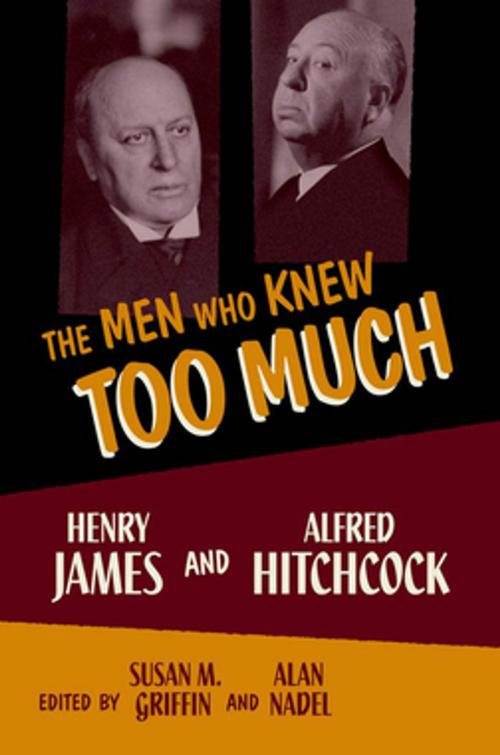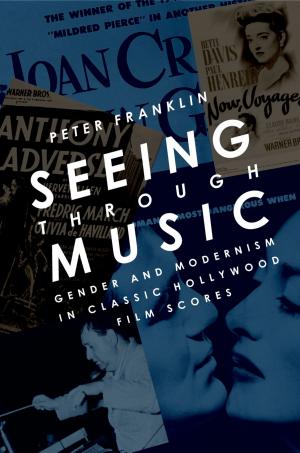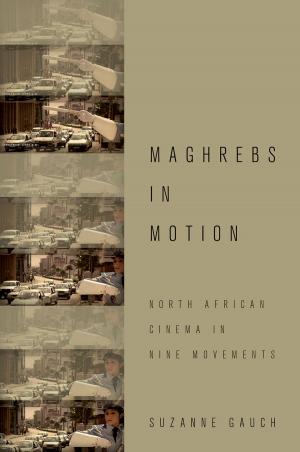The Men Who Knew Too Much
Henry James and Alfred Hitchcock
Nonfiction, Entertainment, Film, History & Criticism, Performing Arts, Fiction & Literature, Literary Theory & Criticism| Author: | ISBN: | 9780199910571 | |
| Publisher: | Oxford University Press | Publication: | December 19, 2011 |
| Imprint: | Oxford University Press | Language: | English |
| Author: | |
| ISBN: | 9780199910571 |
| Publisher: | Oxford University Press |
| Publication: | December 19, 2011 |
| Imprint: | Oxford University Press |
| Language: | English |
Henry James and Alfred Hitchcock knew too much. Self-imposed exiles fully in the know, they approached American and European society as inside-outsiders, a position that afforded them a kind of double vision. Masters of their arts, manipulators of their audiences, prescient and pathbreaking in their techniques, these demanding and meticulous artists fiercely defended authorial and directorial control. Their fictions and films are obsessed with knowledge and its powers: who knows what? What is there to know? The Men Who Knew Too Much innovatively pairs these two greats, showing them to be at once classic and contemporary. Over a dozen major scholars and critics take up works by James and Hitchcock, in paired sets, to explore the often surprising ways that reading James helps us watch Hitchcock and what watching Hitchcock tells us about reading James. A wide-range of approaches offer fresh insights about spectatorship, narrative structure, and cinematic representation, as well as the relationship between technology and art, the powers of silence, sensory-and sensational-experiences, the impact of cognition, and the uncertainty of interpretation. The essays explore the avowal and disavowal of familial bonds, as well as questions of Victorian convention, female agency, and male anxiety. And they fruitfully engage issues related to patriarchy, colonialism, national, transnational, and global identities. The capacious collection, with its brilliant insights and intellectual surprises, is equally compelling in its range and cogency for James readers and film theorists, for Hitchcock fans and James scholars.
Henry James and Alfred Hitchcock knew too much. Self-imposed exiles fully in the know, they approached American and European society as inside-outsiders, a position that afforded them a kind of double vision. Masters of their arts, manipulators of their audiences, prescient and pathbreaking in their techniques, these demanding and meticulous artists fiercely defended authorial and directorial control. Their fictions and films are obsessed with knowledge and its powers: who knows what? What is there to know? The Men Who Knew Too Much innovatively pairs these two greats, showing them to be at once classic and contemporary. Over a dozen major scholars and critics take up works by James and Hitchcock, in paired sets, to explore the often surprising ways that reading James helps us watch Hitchcock and what watching Hitchcock tells us about reading James. A wide-range of approaches offer fresh insights about spectatorship, narrative structure, and cinematic representation, as well as the relationship between technology and art, the powers of silence, sensory-and sensational-experiences, the impact of cognition, and the uncertainty of interpretation. The essays explore the avowal and disavowal of familial bonds, as well as questions of Victorian convention, female agency, and male anxiety. And they fruitfully engage issues related to patriarchy, colonialism, national, transnational, and global identities. The capacious collection, with its brilliant insights and intellectual surprises, is equally compelling in its range and cogency for James readers and film theorists, for Hitchcock fans and James scholars.















